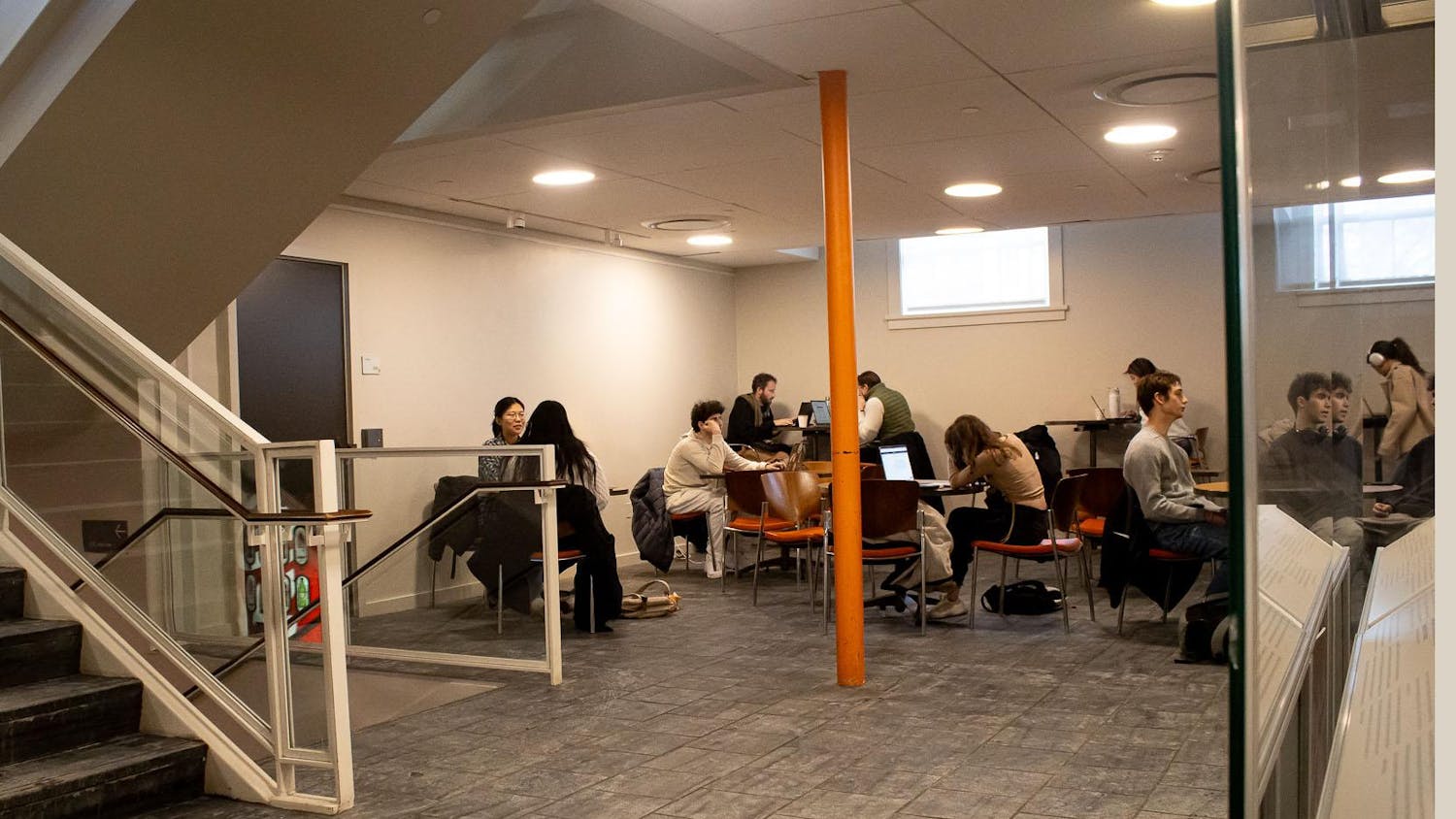Bill Nye, best known for his PBS educational science show targeted toward youth called “Bill Nye The Science Guy” gave a lecture last night to a packed Salomon Hall. Prior to the lecture, the “science guy” sat down with The Herald to talk about science education, his time on television and some of the biggest questions in science today.
The Herald: If you were an element on the periodic table, what would you be and why?
Nye: I probably wouldn’t be a single element. I’d be water if I could be a compound ... But otherwise it would be hydrogen, I guess. You know, common, diatomic, most of the universe. Sometimes an acid, sometimes a metal.
If you could move to another planet, which one would you pick and why?
Now when you say “can”…
Hypothetically here.
Well it wouldn’t be Mercury (or) Venus ... It is reasonable maybe to move to Europa, the moon of Jupiter. It seems to have salt water, which would be a good start. But it’s extraordinarily cold, so it’s not as easy as it sounds.
What is your favorite obscure scientific fact?
I’m charmed by the idea that not only does the Earth’s gravity pull dust down onto bookshelves, but that dust is pulling the Earth up. That’s compelling to me.
And what’s your favorite step in the scientific method?
Oh observation, for sure.
What were you like as a college kid? Were you always into science?
I was a mechanical engineer, but I took Shakespeare. I worked too hard and was not productive. I was not as good a student as the work I put in trying to be one.
What are the greatest challenges in teaching science?
The biggest problem right now is that we don’t start early enough. You really have to get people excited about science when they are in pre-school. ... So we’ve got to start teaching science earlier. And I tell everyone — It’s cheap. It’s cheap to start earlier.
How could you start teaching science in a pre-school, for example?
Give people magnets, give people vinegar and baking soda, give people balloons.
What would you say to someone who says, “Oh, I’m not good at science, I can’t do science?”
You have to, man. ... You have to eat your vegetables. You have to learn science.
On your website you write that your mission is to create a “scientifically literate” society. What do you mean by this?
The taxpayers and the voters can evaluate ideas to improve the quality of life of people everywhere. So, for example, you don’t want the Earth to get hit by an asteroid, so somebody’s going to have to deflect it. And who’s going to pay for that? You want voters and taxpayers to be able to evaluate those ideas reasonably. Like how much do you invest in science education, that’s up to taxpayers and voters too.
What do you think are the biggest science questions we face as a society today?
The biggest question is what are you going to do about climate change. ... Along that line, the universe is accelerating in its expansion, and nobody knows why. You’ve got to think if you could figure that out there would be some astonishing insight into the nature of nature — like relativity was discovered in my father’s youth. There could be a whole new physics that no one’s ever chanced upon. That would, dare I say it, change the world.
What’s the next big thing for Bill Nye?
The Science Show — this new science show with the Science Channel. It’s huge, it’s gigantic, it’s huge.
What will be the basic premise of the show?
That science is in everything. The process of science has something to say about everything in your environment, everything you encounter all day and yourself. Everything includes other people. Even my old boss. He he he.
What do you consider your greatest accomplishment?
The idea of the “Science Guy” show, 20 years ago, was to change the world. That was the idea. Did you watch the show?
Oh, I’m a big fan.
Oh right on, I love you, man. So, when you are a captain of industry, your own software company and all your employees are speaking tonal languages and all that stuff, then I want you to remark: “Yeah, well I watched the ‘Bill Nye the Science Guy’ show. That’s why I started this company, and that’s why I changed the world and found a way to make limitless supplies of energy through this physics discovery,” or whatever it is. Or improve the quality of life of people in East Africa because you raised the standard of living of girls and women through education. Yes, something like that. That would be cool. But we need another 10 or 15 years to see if that happens.
If there is one thing you want Brown students to take from your lecture tonight, what would you hope that message would be?
We want them to feel that they can change the world. Each person can change the world. Each person has a role in a better tomorrow for all humankind. Is that a big deal?
And we talk about the process and the importance of knowing what I like to call your place in space, your place among the stars. …. You asked earlier, if you couldn’t be on Earth, what planet would you want to go to. I mean, there is really no other place for us. This is it man, this is where we make our stand.
See accompanying article.
ADVERTISEMENT




